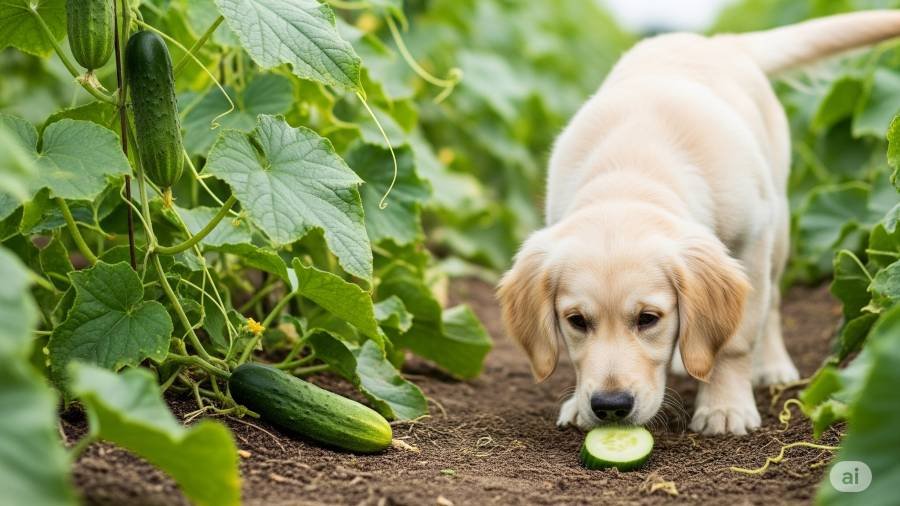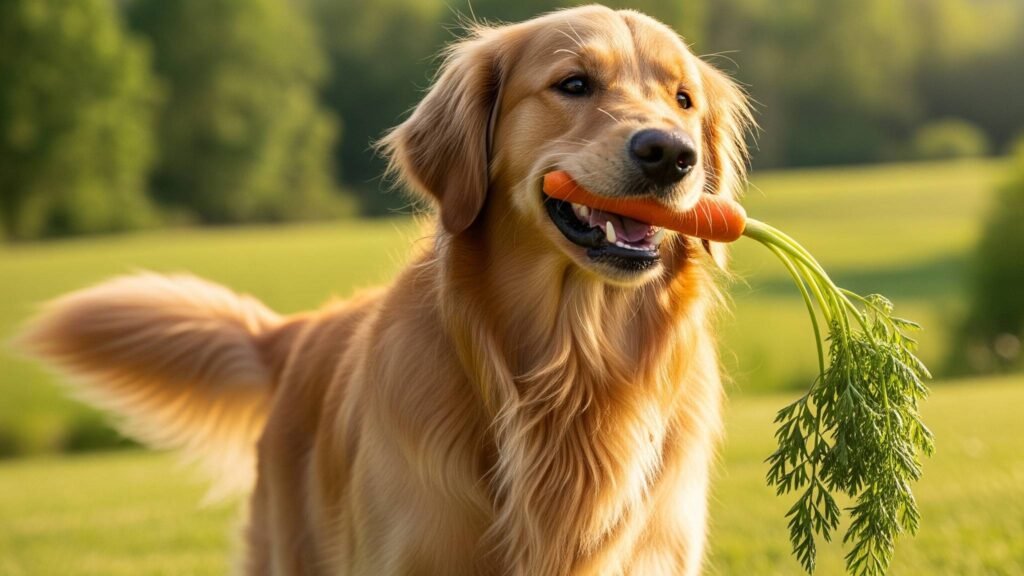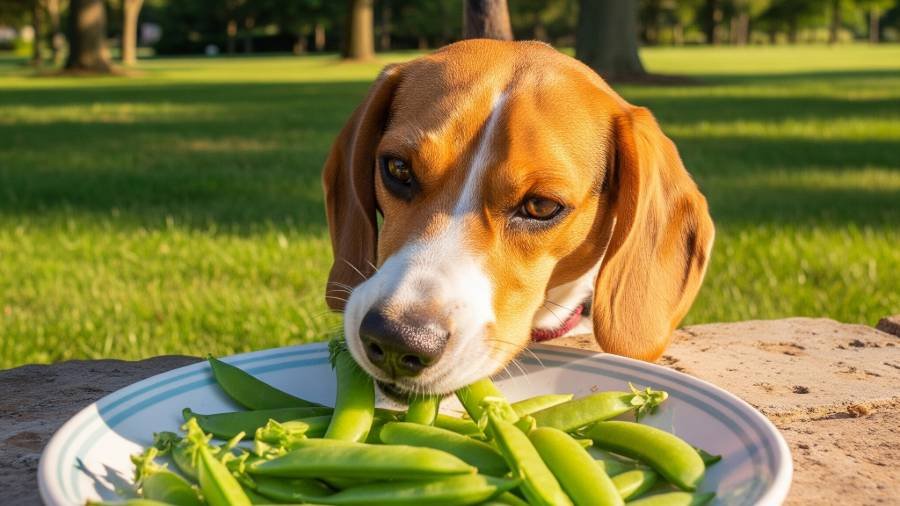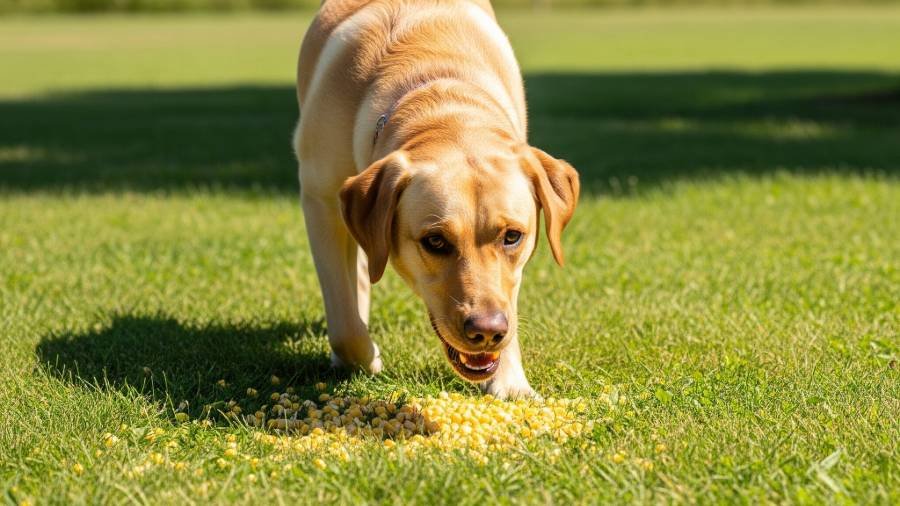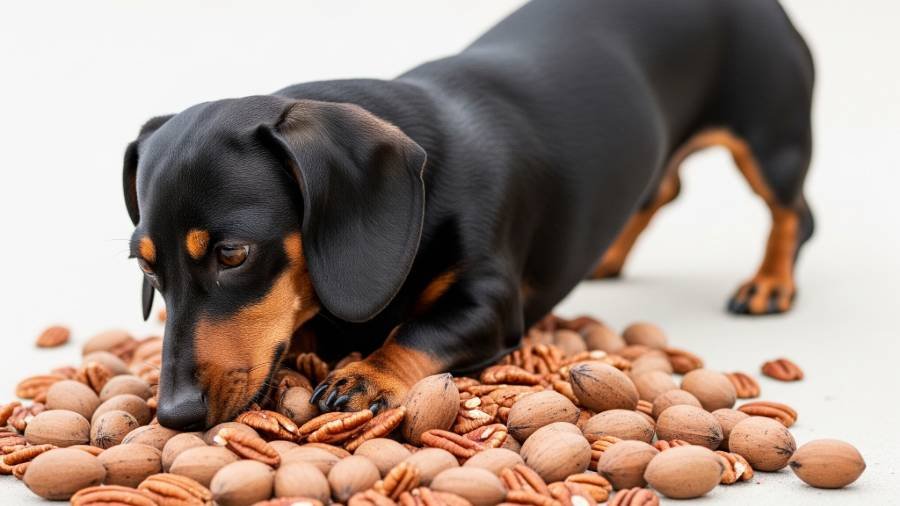It’s a sight familiar to almost all dog owners: your beloved canine companion, mid-walk, suddenly lowers their head and begins munching intently on green blades.
So, why do dogs eat grass?
While there isn’t one single, definitive answer, eating grass is a common behavior among canines and is often a completely normal, instinctual action, though it can sometimes signal underlying issues or a need for different mental stimulation.
For centuries, this peculiar habit has intrigued both scientists and pet parents. While the image of a dog grazing might seem odd for a species known for its carnivorous ancestry, the act of eating grass is deeply ingrained in canine history and can stem from a variety of reasons, ranging from basic instinct to potential dietary curiosities.
Understanding these motivations can provide dog owners with insight into their pet’s well-being and help distinguish between a harmless habit and a cause for concern.

Instinctual Echoes: A Glimpse into Canine Ancestry
One prevailing theory suggests that the act of a dog eating grass is an echo of their wild ancestors. Wolves, coyotes, and other wild canids are known to consume plant matter, including grass, often ingesting it incidentally while consuming prey, or purposefully for its fiber content.
This primal link suggests that the taste of grass may simply appeal to a dog’s inherent omnivorous tendencies, even if their modern dog food is highly processed.
It’s a natural inclination that has persisted through domestication, making it a truly common behavior.
The “Sick Dog” Theory: Vomiting After Eating Grass
Perhaps the most widely known, and often alarming, reason why dogs eat grass is related to gastrointestinal discomfort. Many dog owners observe their dogs vomit after eating grass, leading to the conclusion that the dog ate grass because it felt unwell.
The theory posits that dogs instinctively consume grass as a natural emetic to induce vomiting and relieve upset stomachs caused by indigestion, toxins, or simply feeling nauseous. The rough blades of grass can tickle the stomach lining, triggering the vomit reflex.
However, research shows that a relatively small percentage of dogs actually vomit after eating grass (estimates suggest less than 25%).
This indicates that while it can be a reason, it’s certainly not the only one, nor is every grass-eating episode a sign of illness.
f your dog is eating a large amount of grass and consistently show signs of illness like lethargy, repeated vomiting beyond grass, or changes in appetite, veterinary consultation is essential.
Addressing Nutritional Gaps
Another common question that arises is whether a dog eating grass indicates they are nutritionally deficient. Some dog owners believe their dogs are seeking out missing vitamins, minerals, or fiber that their regular dog food might lack.
While grass does contain some nutrients, it’s generally not considered a significant source of essential vitamins or minerals for dogs, as their digestive systems are not highly efficient at breaking down cellulose.
However, a lack of fiber in a dog’s diet could potentially lead them to eat grass to aid digestion. Modern commercial dog food is typically formulated to be nutritionally complete and balanced.
If your dog is eating an excessive amount of grass and showing other signs of a nutritionally deficient diet (e.g., poor coat quality, low energy), it might be worth discussing their current dog food with your veterinarian.
They can assess if a change in diet or the addition of fiber-rich food items like cooked pumpkin or carrots could be beneficial.
Behavioral & Environmental Factors
Beyond instinct and potential stomach upset, many instances of a dog eating grass are purely behavioral.
- Boredom and Mental Stimulation: For dogs with insufficient mental stimulation or exercise, chewing on grass can simply be a way to pass the time and alleviate boredom. It’s an accessible activity that provides some sensory input. If your dog is eating grass frequently, consider increasing their playtime, walks, or offering puzzle toys.
- Anxiety and Stress: Just like humans might bite their nails, some dogs may engage in obsessive or repetitive behaviors like grass eating when feeling anxious or stressed. Observing the context in which your dog ate grass can sometimes provide clues.
- Simply the Taste of Grass: Some dogs genuinely seem to enjoy the taste of grass! Especially fresh, young blades in spring, which can be sweet and tender. It’s no more complex than a human enjoying a specific snack.
- Attention-Seeking: If your dog learns that eating grass gets your attention (even if it’s negative attention like pulling them away), they might repeat the behavior.
When to Be Concerned
While eating grass is a common behavior, there are times when it warrants closer attention:
- Excessive or Obsessive Eating: If your dog is eating an unusually large amount of grass very frequently or compulsively, it could signal more than just boredom.
- Consistent Vomiting: If your dog regularly vomit after eating grass (more than occasionally), or if the vomiting persists after they ate grass, it’s a strong indicator of gastrointestinal distress that needs veterinary investigation.
- Accompanying Symptoms: If your dog ate grass and then starts to show signs of illness like lethargy, loss of appetite, diarrhea (especially with blood), painful abdomen, or changes in behavior, contact your vet immediately.
- Pesticide/Herbicide Exposure: Be extremely cautious about where your dog is consuming grass. Lawns treated with pesticides, herbicides, or other chemicals can be highly toxic. If you suspect your dog has ingested treated grass and show signs of illness, seek urgent veterinary care.
- Foreign Objects: Very rarely, dogs might eat other plant matter or debris along with grass, which could cause internal issues.
Managing the Behavior (If Desired)
If you wish to stop eating grass or if you’re concerned about it, consider these approaches:
- Increase Exercise & Mental Stimulation: More walks, interactive toys, training sessions, and playtime can reduce boredom-related grass eating. This is particularly effective for younger dogs who have abundant energy.
- Dietary Review: Discuss your dog’s current dog food with your veterinarian. Ensure it’s a complete and balanced diet. If fiber is a concern, your vet might recommend adding small amounts of fiber-rich food items like cooked carrots or peas.
- Supervision: Monitor your dog closely during walks, especially in areas where grass might be treated.
- Offer Safe Alternatives: Sometimes, providing more appealing and safe chewing alternatives or healthy treats can divert their attention.
Safe Treat Alternatives
Instead of worrying about why do dogs eat grass, consider diverting their attention with these healthy and safe treat alternatives that also offer mental stimulation and satisfy their chewing instincts:
- Crunchy Vegetables: Small pieces of raw carrots, cucumbers, or bell peppers offer a satisfying crunch and are low in calories.
- Frozen Fruits: Small portions of frozen blueberries or watermelon can be refreshing and hydrating.
- Plain Cooked Protein: Unseasoned, cooked turkey or chicken bits provide lean protein.
- Probiotic Boost: A small spoonful of plain Greek yogurt can support gut health, similar to what some hope grass might do.
- Safe Chews: Introduce veterinarian-approved dental chews or puzzle toys filled with a bit of peanut butter (xylitol-free) to engage their minds.
Always introduce any new food items gradually and in moderation. For more detailed information on specific safe vegetables or fruits your dog can enjoy, explore our comprehensive guides on SnackVet.com.
Ultimately, eating grass is a common behavior for dogs, often harmless and a remnant of their ancestral instincts. While it can sometimes be a sign of an upset stomach or a lack of mental stimulation, for many dogs, it’s simply a natural, perhaps even enjoyable, activity.
As dog owners, observing when and how much your dog is eating grass, and whether they show signs of illness afterward, is key.
When in doubt, or if you notice any concerning changes, consulting your veterinarian is always the wisest course of action to ensure your canine companion remains happy and healthy.
